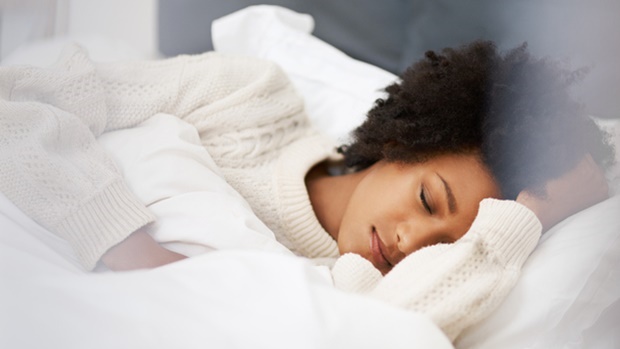
A good night's sleep is just as important as a healthy diet or keeping fit.
Studies show that poor quality sleep has instant negative effects on your brain function and performance during the day.
However, good sleep can help you eat less, exercise more effectively and be healthier overall. In recent years, both sleep quality and quantity have significantly declined, with many people regularly getting poor sleep.
Here are five tips for sleeping better at night:
1. Determine how much sleep you need
According to research by the National Sleep Foundation, the appropriate duration of sleep each night for most adults is seven to nine hours. However, this is not the case for everyone as there are different factors such as age and pregnancy that affect the amount of sleep each person needs.
If you are unsure if you are getting the right amount of sleep at night, there are three questions you need to ask yourself:
- Can you wake up without an alarm?
If you're usually awake before your alarm goes off or if you wake up multiple times during the night, and it is not due to drinking liquids or a sleep disorder, it could be your brain telling you that it has had enough sleep. However, if you struggle to wake up in the morning when your alarm goes off, you might need more sleep or you need to adjust your sleep schedule.
- How have you been feeling?
Keeping a sleep diary or downloading a sleep app will help you notice patterns and decide which type of sleep routine is most beneficial for your health and happiness. During your day, do not brush off feelings of anxiety or fatigue as this could be your body's way of alerting you to the fact that you need more sleep.
- How long does it take for you to doze off?
In a perfect world, we would all be able to get into bed, put our heads on our pillows and immediacy drift off. Unfortunately this is not the case, and for the average person it takes about 20 minutes to fall asleep after getting into bed. There could be a number of reasons for struggling to fall asleep, which brings us to our next point: Your lifestyle.

2. Limit your alcohol and caffeine intake before bed
While alcohol might help you fall into a deep sleep more quickly, studies show that it can affect the quality of your sleep. Alcohol reduces rapid eye movement (REM) sleep.
Caffeine may make it difficult to fall asleep and may also cause you to sleep more lightly, as well as disrupting the REM stage of your sleep cycle. A study found that drinking coffee six hours before going to bed reduced total sleep time by one hour.
REM sleep occurs approximately 90 minutes after we fall asleep. Disruptions in the REM stage of sleep not only deprives you of much needed sleep but can also cause you to be lethargic and unable to concentrate during the day.
If you are ingesting alcohol or caffeine, try to avoid these substances close to your bedtime so that your body has time to process them.
3. Charge your phone away from your bed
It is not uncommon for people to lie in bed and scroll through social media on their phone just before going to sleep. This is made even easier when your phone is charging next to your bed.
The problem is that the light from our devices is "short-wavelength-enriched", meaning it has a higher concentration of blue light than natural light. Blue light not only lowers the levels of the hormone melatonin, which is sleep-inducing, but it also disrupts the body's circadian rhythms.
Blue light essentially tricks your body into thinking it is daytime, resulting in difficulty falling asleep.

4. Reduce long daytime naps
Power naps (60 to 90 minutes long) are aptly named as they have been proven to be beneficial; however, long naps during the day can negatively impact your sleep at night. Studies also show irregular naps during the day result in sleepiness during the day.
Sleeping during the daytime can also mess with your internal body clock, which could result in difficulty falling asleep at night.
5. Replace your pillow and mattress
Studies show that your mattress and pillow both have a big impact on the quality of your sleep.
There has also been research on the benefits of a new mattress. A study found that a better mattress reduced back pain by 57%, back stiffness by 59%, shoulder pain by 60% and improved sleep quality by 60%.
According to the National Sleep Foundation, pillows should be replaced every year, while your mattress should be replaced every five to 10 years. Replacing both your pillow and mattress could be a quick solution to your sleeping problems.
Image credit: iStock




 Publications
Publications
 Partners
Partners











